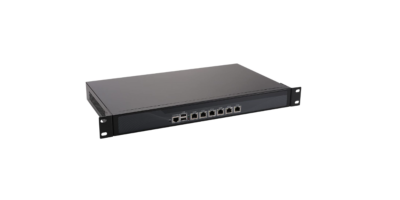10 Most Popular HIPAA Compliant File Sharing Tools
In today’s digital age, ensuring the privacy and security of sensitive health information is of paramount importance. The Health Insurance…


 MedicalITG Cyber TitanA unique and secure approach for the healthcare industry to achieve then maintain security and HIPAA compliance
MedicalITG Cyber TitanA unique and secure approach for the healthcare industry to achieve then maintain security and HIPAA compliance Security Operations PlatformA complete Security Operations Platform for Managed Detection and Response (MDR) and triaged by the Concierge Security® Team
Security Operations PlatformA complete Security Operations Platform for Managed Detection and Response (MDR) and triaged by the Concierge Security® Team Managed Endpoint ProtectionProfessionally Managed Service paired with a next-gen security suite protects against ransomware, zero-day, malware, fileless attacks, and other sophisticated threats
Managed Endpoint ProtectionProfessionally Managed Service paired with a next-gen security suite protects against ransomware, zero-day, malware, fileless attacks, and other sophisticated threatsIn today’s digital age, ensuring the privacy and security of sensitive health information is of paramount importance. The Health Insurance…
Are you a business that works with sensitive data? Regulations such as GDPR and HIPAA have been set up by…
HIPAA requires healthcare organizations to conduct a risk analysis of their information systems and procedures to identify Risk Factors and potential safeguards. However, what exactly goes into a HIPAA risk analysis? In this blog post, we will discuss the key elements your organization should include in a HIPAA risk analysis.
In today’s digital age, it is more important than ever to protect your confidential data. And with new HIPAA-compliant cloud storage solutions on the market, there is no better way to keep your information safe and secure. Here are just a few of the benefits of using HIPAA-compliant cloud services.
Health Insurance Portability and Accountability Act (HIPAA) of 1996 is a law that protects patient health information. HIPAA has security standards in place to keep personal health information secure. HIPAA also has privacy rules that protect individuals’ access to their medical records.
The Health Insurance Portability and Accountability Act (HIPAA) is a set of regulations that ensure the privacy and security of Protected Health Information (PHI). If you are storing, transmitting, or sharing PHI electronically, you must be HIPAA compliant.
HIPAA is a set of federal laws that govern how health care providers, insurers, employers, and other parties may use or disclose an individual’s protected health information. HIPAA also includes a patient’s rights concerning their medical records.
In 2015, OCR conducted 115 audits and found that 96% of those audited were not in compliance with at least one major provision of HIPAA. Furthermore, nearly half of the organizations audited had not completed a risk analysis – which is required by HIPAA.
In what may come as a relief for several healthcare providers, there is still uncertainty about when the next round of HIPAA Audits will start. What you have right now is time to look at your medical practice’s state of digital security and compliance status in line with the Omnibus Rule changes if you have not already done it.
Evernote is a cloud-based app that offers online storage and access to all your notes, and other information to save. Due to the fact that Evernote’s company does not sign a Business Associate Agreement (BAA), the app is NOT HIPAA compliant! Do not store PHI using this software.